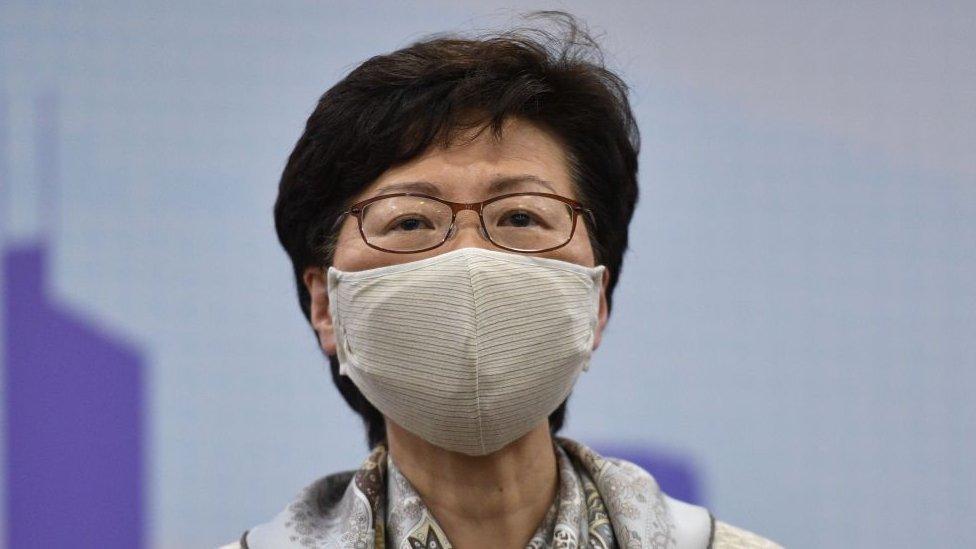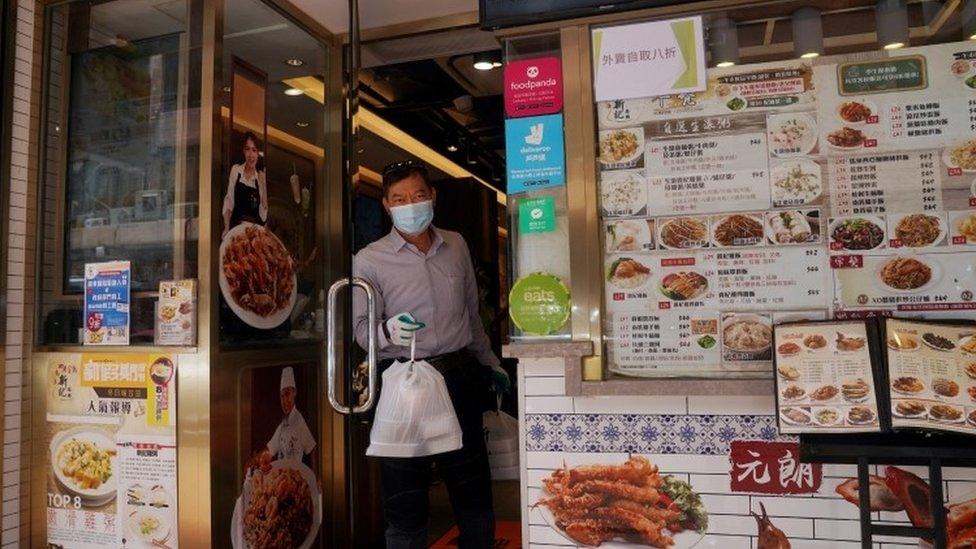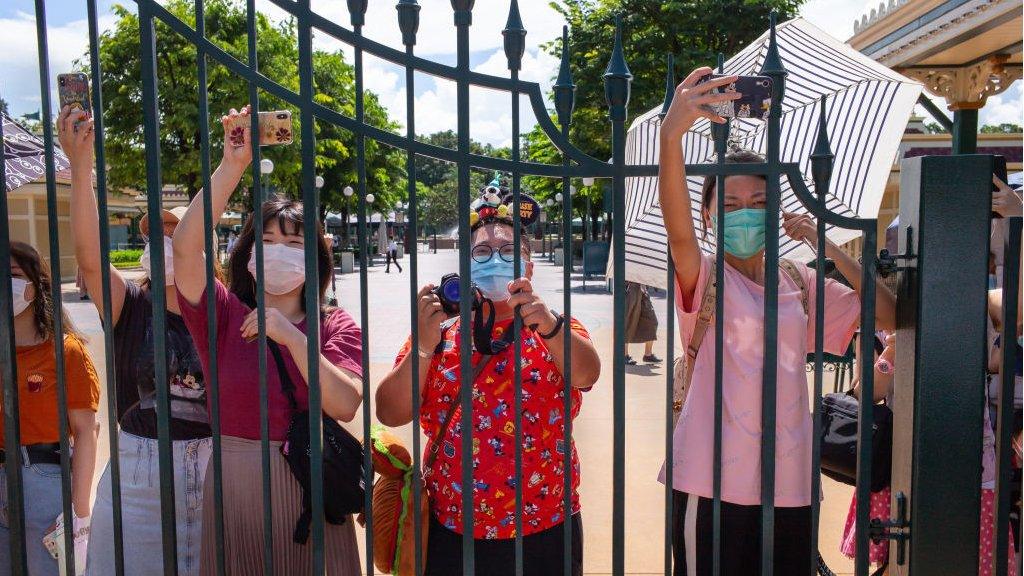Coronavirus: Hong Kong on verge of 'large-scale' outbreak, says Carrie Lam
- Published

Carrie Lam has urged residents to stay home as the city grapples with a growing outbreak
Hong Kong's hospital system could face "collapse" as it grapples with a sharp rise in coronavirus cases, the city's leader Carrie Lam has warned.
She said the city was "on the verge of a large-scale community outbreak" and urged people to stay indoors.
New regulations, including mandatory face masks and the closure of dine-in restaurants, kicked in on Wednesday.
Hong Kong - which had early success against Covid-19 - is now regularly reporting over 100 new daily cases.
Less than a month ago, the average number of new daily cases was under 10.
What did Carrie Lam say?
In a statement late on Tuesday, Ms Lam warned the city was on the "verge of a large-scale community outbreak, which may lead to a collapse of our hospital system and cost lives, especially of the elderly".
She called on residents to adhere "strictly to social distancing measures and stay at home as far as possible".
Her remarks come as Hong Kong confirmed another 106 coronavirus cases on Tuesday, and reported its 23rd overall death.
A record 145 cases were recorded on Monday.
What are the new restrictions?
From Wednesday, dining in restaurants is banned, and only two people from different households can meet, under the toughest rules Hong Kong has adopted so far.
It's also now compulsory for face masks to be worn in all public places.
It was earlier announced that spaces like bars, gyms and beauty parlours would be closed.

Dining in restaurants has been banned
At the start of the month, public gatherings of up to 50 people were allowed - but that was reduced to four, and now two.

Lunching in the rain
By Grace Tsoi, BBC News, Hong Kong
Social media here has been inundated with photos showing cleaners and construction workers having lunch outdoors in the heavy rain, external.
No dining-in is allowed in restaurants for a week as part of new stringent social distancing measures. The city is battling a new wave that has seen more than 100 new cases for eight days in a row. In total, Hong Kong has recorded 3,002 cases with 24 deaths.
There's fresh anger against the government for exempting some 200,000 people, including seafarers and aircrew, from quarantine when they entered the city. Public health experts have said the latest outbreak was likely caused by such imported cases.
Hong Kong's public hospitals have been stretched thin and more than 78% of isolation beds are occupied. An exhibition centre is being converted into a temporary hospital for patients with mild symptoms and it will open its doors from this Saturday at the soonest.

Wasn't Hong Kong a virus success story?
It definitely looked that way to begin with. At the start of the outbreak earlier this year, cross-border travel with China was sharply reduced, "track and trace" was introduced, and other restrictions were imposed.
The city went weeks without a locally transmitted case.
But as life started to go back to normal, a rise in locally transmitted cases was recorded. The average number of new cases rose from single figures at the start of the month, to more than 120 now.
One professor at the University of Hong Kong said the cases had probably emerged due to "flaws in border procedures in Hong Kong".
Jin Dongyan told the Global Times, external that "patients from overseas may have brought the virus to communities which resulted in the current local transmission".
The latest person to die from the virus was a resident of a care home where at least 45 infections have been recorded.
Local scientists have voiced fears that a strain of the virus circulating in Hong Kong could cause greater damage.
It is said to have not mutated for at least 22 days, meaning it could have adapted well to humans, becoming easier to transmit.
Will the election still take place?
The new measures come amid reports that elections to Hong Kong's parliament - the Legislative Council - could be postponed by a year.
News outlets HK01, Hong Kong Economic Times and TVB said the government had made the decision, which is yet to be formally announced, because of coronavirus concerns.
The elections were set to be held on 6 September. Opposition figures, however, have suggested the postponement is designed to dissipate anger over the new national security law.
Hong Kong activist Joshua Wong believes he is now being followed after the new security law was passed
The wide-ranging law, imposed by Beijing last month, criminalises acts of "secession, subversion, terrorism, and collusion".
It was seen as curtailing criticism and freedom of speech - while increasing Beijing's control of Hong Kong, which has been a special administrative region of China since British ruled ended in 1997.
- Published14 July 2020
